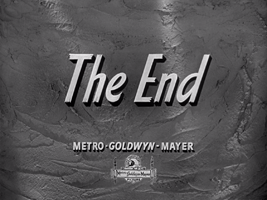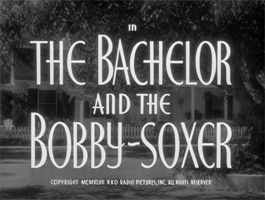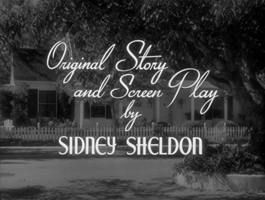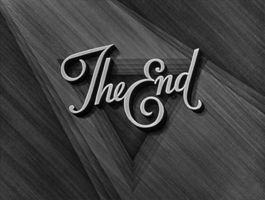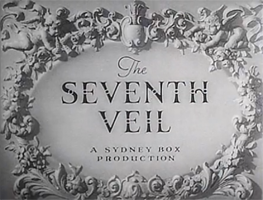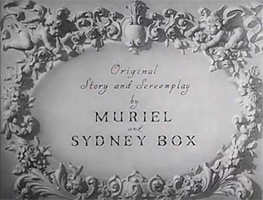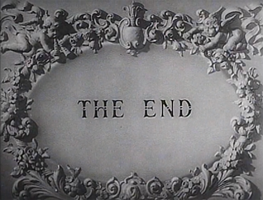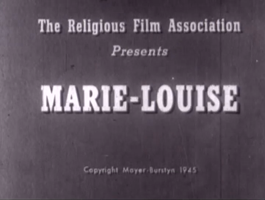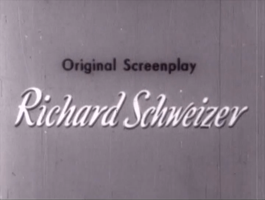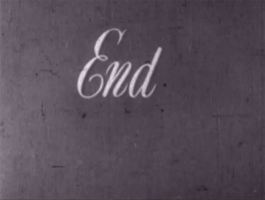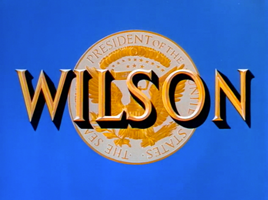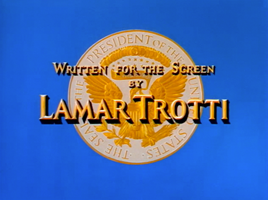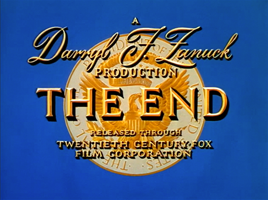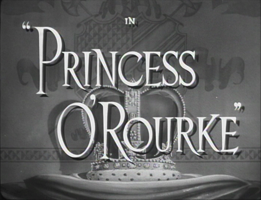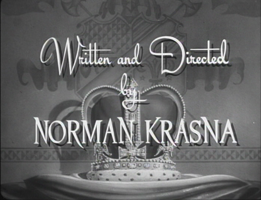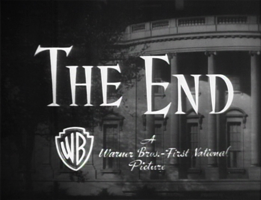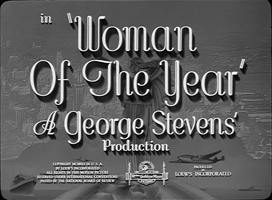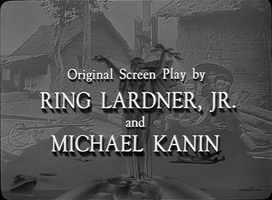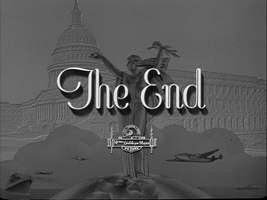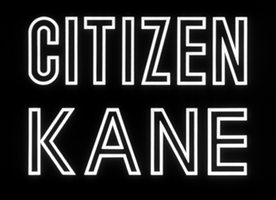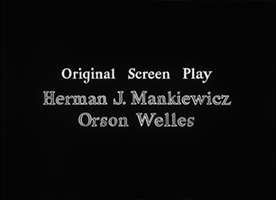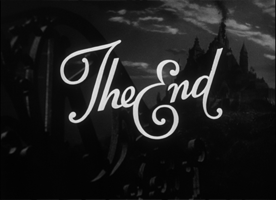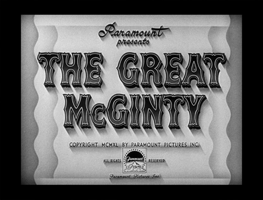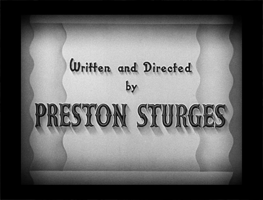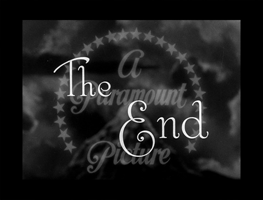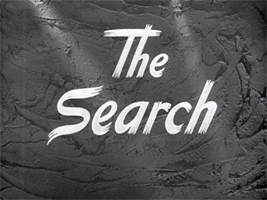
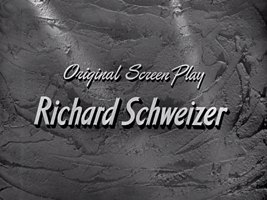
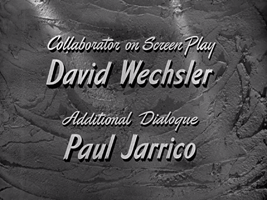
Winner in the category of WRITING (Motion Picture Story) at the 21st Academy Awards, presented March 24, 1949 at Academy Award Theater.
The other nominees were:
Louisiana Story – Frances and Robert Flaherty
The Naked City – Malvin Wald
Red River – Borden Chase
The Red Shoes – Emeric Pressburger
The Search was also a nominee in the category of WRITING (Screenplay); it lost to the adapted screenplay of The Treasure of the Sierra Madre. (The Search was the only film nominated in both categories.)
Screenplay is not accessible, to my knowledge.
First lines in film:
– Yes, ma’am.
BROOM Hooray! We’re back on track, everybody!
BETH Sort of.
BROOM This was basically “Son of Marie-Louise.” It was by the same author, and it was the same weird thing, somewhere in between being a real story and a just-for-the-sake-of-depicting-important-issues story.
ADAM I found this much more affecting than Marie-Louise.
BROOM Were you annoyed that BETH and I sort of switched into making-fun-of-it mode, toward the end?
ADAM Well, I was sort of tearing up toward the end. I thought it was very sad. Even though it had all these clunky elements, it was still very affecting.
BETH I actually was crying in the beginning, and didn’t want either of you to know.
BROOM I knew.
ADAM We knew.
BROOM But I was moved also. I was moved basically until he started learning English, and then it became…
BETH Some other kind of movie.
BROOM Yeah. It didn’t work for me anymore.
BETH It was this weird combination of didactic, Disney-style educational film, mixed with these really moving, poignant scenes of shell-shocked kids being hustled through the system, which were probably pretty accurate. It made me really think about what that was like, and I hadn’t thought about what that was like. And I thought about your grandmother, and what these people went through.
BROOM She was a little older. But I felt the same way for the first half: there was something effective about its being in between — just like Marie-Louise was, but even moreso — in between a documentary and a fiction… kind of a transparently shoddy fiction. I thought it was such a strange and interesting effect that the movie essentially started with the boy running away from a documentary about him. There was a narrator, like a real documentary: “And now the children get in these trucks, but they’re very afraid…” And he couldn’t take it any more and ran away. I found that affecting. I was having the same thoughts you were: “Oh, right, of course it’s traumatizing. Of course these people are ruined for life.”
BETH Yeah. These kids can’t trust anyone, even kind adults, because all they know is the opposite.
BROOM It was striking to me: I’m not sure I’ve ever seen a movie about a terrible event like a war or a genocide that’s purely about the trauma in the aftermath. The bad thing is no longer happening, but you’re living in a traumatized world.
ADAM Well, Sophie’s Choice.
BROOM But that’s about flashbacks, and this was really exclusively a movie about coping in the present. Yes, I guess Sophie’s Choice is also about “can you find love again, can you find meaning again, if you’re a traumatized person,” but what I was gonna say is — I’ve seen devastated Germany and France in so many World War II movies — Saving Private Ryan and the like — but somehow, because it was shot in such a pedestrian way on the real locations, and because we were in this mindset of thinking about trauma, I was really struck by it in a fresh way: “Wow, places that were normal are now just a crazy landscape of rubble.”
BETH That’s what Germany, Year Zero is. It’s also about a boy wandering around rubble. It looks so much like this, but it has a different tone.
ADAM I found it weirdly disturbing to see all the children running away from Americans. I wanted to be like “No no no, you misunderstood!”
BETH Right! But that’s how the Americans reacted too. That moved me.
ADAM The Americans weren’t really very… I mean, Montgomery Clift was like a child whisperer — but the matron was just doing her best. She didn’t have the touch.
BETH She did not have the touch. She was like, “Say something nice to them. Because I can’t.”
ADAM “Her parents were gassed.” [the matron, without a hint of sadness:] “I see!”
BROOM It was a point being made, in the scheme of the movie, that she and her male equivalent were emotional clods.
ADAM Were you supposed to see her as having been redeemed and softened by the end?
BROOM No.
BETH You don’t think so? I do.
ADAM I think the actress just wasn’t skilled enough to convince you of that.
BETH I think you’re supposed to see her as well-intentioned, doing her job as best she can…
BROOM Yeah, I think, as ADAM said, she just didn’t have the touch; she’s just one of those people, and such people still do good works in the world.
ADAM The actress was too kindly at the beginning and too brusque at the end to really show the character arc, but I think she was meant to be, like, a tough cookie in the system who softened. But maybe not.
BROOM Well, I think the logic of the “dramatic arc” only applies so far. I feel like this movie — just like Marie-Louise — was trying to be very open about the fact that its function was just to help you think about a thing in the real world. “We’re only telling a story insofar as that’s a good way of getting across the documentary content.” That’s what it seemed like to me. So I thought the matron character, and the dumb guy who was like “Ah! I see! This boy is afraid of punishment!” — the only point was, like: “Sometimes, in the happy friendly world, kids still encounter people who seem scary to them.” And that was it. It wasn’t supposed to be about what happens to these particular characters. That’s how I felt the whole movie: storytelling as a way of getting at reality; as opposed to storytelling as wonderful in itself. And I think that’s why I felt done with it after a certain point. When we were just in the anticipation-of-the-ending phase. Because this story was never a real journey, to me, it was just a scheme.
ADAM The pacing was very slow in a way that — I don’t know if that was just the forties, or the style of this movie in particular — but there were several minutes of just jeeps, or driving…
BETH “Why are we watching so much of this dinner party?”
ADAM The movie had a real surprising willingness to just let you listen to foreign languages and have no idea what was going on.
BETH I actually liked that about it, because I feel like that established a sense of realism. “Oh, this is what it would be like if I were there.”
BROOM I wondered whether that might be just that we were renting it on Youtube and maybe that kind of subtitling doesn’t come on automatically. But then I thought, “well, it’s working for me as it is.”
BETH No, Marie-Louise was like that too.
BROOM But that was a foreign-language film.
BETH Yeah, but sometimes there were other languages within it.
BROOM Well, Europeans are more likely to know other languages.
ADAM There was nothing you needed to understand. Everything got translated for you, ultimately.
BROOM Yeah, you’re right. It worked so well this way it was probably intended. And it was suitable since it gave you the experience of being one of these kids who doesn’t understand the language being spoken to them, most of the time.
BETH Right.
ADAM Next time they should make it from the perspective of the boy, where you can’t understand any of the words until two-thirds of the way through.
BETH Until you’re looking at pictures of —
BROOM Umbrellas and ostriches.
ADAM Tomatoes. “Pretty girl!” Montgomery Clift did look a lot like Tom Cruise, and he did have that wisacre-knucklehead “I’m sure of myself” charm of Risky Business Tom Cruise. He was really hot.
BROOM From the very beginning I thought, “Oh, he’s like someone.” After about ten minutes I thought, “Owen Wilson.” But later I thought, “No, it’s Tom Cruise, because Tom Cruise acts exactly like this, too.” The whole personal presentational style and demeanor.
BETH How he carries himself.
BROOM What he does with his face, his manner. You said earlier that he’s like a child whisperer, but actually — knowing in advance it was going to be about Montgomery Clift thawing this traumatized kid…
ADAM You thought of Rainman?
BROOM No. I thought it was indeed gonna be a “child whisperer” movie, and then I was struck by the fact that this American, “Steve,” was not actually particularly attuned to the kid; he was just a basically nice guy.
BETH He was also doing his best.
BROOM Right. He didn’t have a special kind of soft touch. He was just the kind of person where you can sense that he’s friendly. Even if he says the wrong thing, and yells at you when you say you want to find your mother. That was the moment when I really detached from the movie. It was obviously just to draw things out.
ADAM Even though I knew that they would find each other, I was legitimately worried that he would be taken to America and never find her. I didn’t actually think that was gonna happen, but it was still stressful.
BROOM So did you guys not share with me the sensation that we were a couple meters further away from this movie than we would be from most movies, as an audience?
BETH I did share that sensation, yeah. My impression of Montgomery Clift prior to this was that he was really intense, always kind of overplaying his roles, but here he was doing what the job called for, which was to be slightly dopey — you know, a normal guy, instead of an intense, suffering soul. And that impressed me, because I didn’t think that was part of his ability.
ADAM I can’t even think of anything else he was in.
BROOM What have you seen him in, BETH?
BETH Red River and something else, with Elizabeth Taylor.
BROOM We can look this up. A Place in the Sun?
BETH Yes.
BROOM I had his Wikipedia entry open because I just wanted to read this one thing into the conversation: “Clift’s second movie was The Search. Clift was unhappy with the quality of the script, and rewrote most of it himself. The movie was awarded a screenwriting Academy Award, but the original writers were credited.”
BETH He rewrote most of it himself?!
BROOM I assume it just means his part. Which is probably why we were scoffing at the absurdity of the dialogue in other scenes, and less so his scenes.
BETH Yeah. Interesting. How old was he?
BROOM Twenty-seven or -eight, depending on when it was filmed. He turned twenty-eight in 1948.
BETH So part of what I found problematic about the matron was her acting, but I also think she wasn’t given very good stuff to work with. Which contrasts with how good the mother was, because I think she also wasn’t given great stuff to work with, but she sold it. Also the British guy who ripped the vestments off the kid.
ADAM “Oh! You’re not a little Catholic boy!”
BROOM “Oh I see! That’s not his real name!”
ADAM That was still a heartbreaking scene, where the mother has to wait there excitedly.
BETH We had to suffer already knowing what was going to happen. It’s super-manipulative, in a way that isn’t okay.
BROOM That scene actually didn’t work for me. Because this obviously isn’t her son — we the audience know it and the writers know that we know it, because we know very well that our boy didn’t sign up for the choir when he first arrived — so when we’re watching her waiting in this room, we don’t feel suspense, we just feel like, “Ughhhh….”
BETH We feel dread.
BROOM Yeah, just dismay that we’re about to watch her get bad news and be sad. They make us sit with that for a while. I thought, “Does this map on to some emotion that’s relevant to this subject matter?” I’m not sure it does. It’s not awareness-raising in any real way. So that didn’t really work for me.
BETH But the whole movie is manipulative, in that it’s giving false hope to all of these people in this moment who might still have unresolved situations with their own relatives.
BROOM Well, it’s 1948 by the time this comes out.
BETH I guess by then most things have been resolved.
BROOM In fact, the movie was pretty clear that in real life, the mother would almost certainly be dead. It was only miraculously that she happened to be alive.
ADAM This movie doesn’t really shed any tears for Dr. Malik or the daughter.
BETH It sure doesn’t!
BROOM When they said that the father and sister were deported and he was left with his mother, I was so sure that the mother was going to die and it was going to be about finding the father and sister. But it was the other way around.
ADAM “Dr. Malik was known all over town because he was a good doctor.” Then there’s six minutes of them playing violin.
BETH That was a needlessly long scene.
BROOM No, that worked for me. The point was that he came from a place of culture, safety, beauty, and this magical sound of classical music that you’re never going to hear again. I felt like that was worth something.
ADAM Until you hear that angelic children’s choir…
BETH And you think maybe he was drawn to those voices. I think maybe that’s what we were supposed to think.
BROOM No, I could tell those voices weren’t Czech.
ADAM Very little actually seemed Czech in this movie.
BROOM He looked Czech, to me.
BETH The French kid at the beginning who was his friend was a good actor. I was struck by him prior to anyone saying anything. There’s a lot of pure cinema in this, which I appreciated — like the whole scene where they were running away.
BROOM You mean dialogue-free?
BETH Yeah.
BROOM I thought maybe you meant using real-world people and locations.
BETH No.
BROOM My opinion about Richard Schweizer is that his whole attitude, which is a very old-fashioned attitude — the fundamental idea of it kinda works for me: you admit that what you’re doing is propaganda, and then you tell a very schematic story — I think within that premise, Schweizer actually has good ideas. Like the picture of the dogs on the wall, that’s affecting; it works for me. Or, like I said, the scene of music-making at home. All these things, which are essentially filmic ideas, are good. But then the dialogue is like… it’s like what my grandmother would write. I feel like my grandmother had this old-world dramatic heart, where she would very much identify with the idea that the kid looks at the picture of the doggies on the wall and that means “mother” to him. She would have thought of that, and she would equally have thought of dialogue like “Oh dear, what is this that you’ve done!” This stilted, melodramatic attitude toward dialogue. I can believe that Montgomery Clift rewrote all the words that came out of his mouth, but he didn’t rewrite the actual content of the scenes, because they still served those weird functions.
BETH Yeah. There were some weird scenes.
BROOM When the kid is like, “I want to find my mother!” And Steve says “Just come have dinner! Go to your room!” That didn’t make any sense for the character.
BETH “Jeeps are from America! I am from America! I’ll be right back!”
ADAM Did that boy serve any function other than to cry and make Karel realize he didn’t have a mother?
BETH No.
BROOM To be a wretched American. I didn’t enjoy his presence at all. Or his mother’s.
BETH Yeah, she was weird.
BROOM It seemed like amateurish actors for a lot of the parts. Except for Monty. I can imagine they budgeted more for that role and for the mother.
BETH And that guy, his army buddy who’s in Rear Window and a lot of other stuff.
BROOM That seems to be Wendell Corey.
BETH He was a solid sort of “If I’m here, things are gonna be fine” kind of guy.
[digression about Wendell Corey’s political career &c.]
BETH Do you have any final thoughts?
BROOM Before we wrap up I want to make sure we all talk about this as writing, since that’s the project. Oh, and let me establish: this is the year in which it starts to get skoovy about what award category to follow.
BETH Are you gonna write S-K-O-O-V-Y?
ADAM S-K-O-O-V-I-E.
BROOM If I do transcribe it, I would go with the Y. A “skoovie” with an I-E would be a noun. You would put it on your mantelpiece.
ADAM You affix it to the back of your boat.
[digression about Boaty McBoatface]
BROOM Right, so, this year there was no “Best Original Screenplay,” there was just “Best Screenplay” and “Best Story.” This movie was the winner of “Best Story,” which we went with because “Best Screenplay” went to an adaptation, and we’re trying to follow the concept of “original screenplay.” Of course, there had been a “Best Story” category all along, so, yes, maybe we should have started with that. But there’s no backsies in this game. So this movie was the winner of “Best Story.” Do you feel that it had… the best story?
ADAM I think that the story will probably linger in our minds for longer than the writing will.
BROOM For sure. I don’t remember a single word from Marie-Louise, but I remember the gist.
BETH I don’t remember a lot of Marie-Louise, I have to say.
ADAM They were in the Alps. And they had to leave.
BROOM She was hiding upstairs and knocked a ball down the stairs and had to reveal herself.
BETH I remember that, but I wouldn’t have if you hadn’t told me. I remember the beginning the most, where they were in the shelter.
BROOM It was really the same movie: she’s a traumatized girl, and then she comes to live with sweet Swiss people.
BETH I think it’s a story that’s worth telling.
ADAM It’s The Secret Garden.
BROOM There was also a whole section about how the people who worked at the textile mill were going to work overtime for the sake of the kids, somehow. Sort of the communist section of the movie.
ADAM Do you think this is where Steven Spielberg got the idea to identify one child in a concentration camp by their garment?
BROOM No. But during the bloodhound scene, I thought, “If Steven Spielberg saw this, he’d say ‘That’s good! Use that.'” Where the kid runs away from the dinner table, feeling alone without his real family, to go look at a picture of loving doggies. Come on! That’s gold.
BETH But that scene wasn’t well directed.
BROOM I thought the shot of him looking up at the picture was the right shot.
BETH But the kid’s reaction wasn’t directed well. It was very exaggerated.
ADAM That’s why they needed Jonathan Lipnicki.
BETH He needed Steven Spielberg, to guide him.
BROOM I want to throw out this thought I had at the beginning: art that is made to serve the political conscience of a moment, in that moment seems the most profound, and in every other moment seems the most transitory. And this in itself reveals the falseness of our idea of what “profound emotions” are. That was my thought, almost immediately, when the movie started with, “You know this just happened in Europe; now we’re all soberly going to the cinema to honor it.” And that section actually ended up being moving to me. But I was thinking, “What makes someone pay to sit down and watch this?” I guess if someone told them it was good. But I feel like now, we go to see The Hurt Locker or something… well, I didn’t see that, so I don’t know…
ADAM Hotel Rwanda.
BROOM That’s the classic “no one actually wanted to watch it” movie. I’m talking more about these American military venture movies that get made all the time. For example: because I want to use my BAM membership, I’m totally going to go see the drone warfare ethical debate movie with Helen Mirren shouting into the phone. It looked like crap from the preview, but then it got pretty good reviews. But I thought, “Movies like that get good reviews because people get really high on this idea that if something is in the media, is politically important, and has some kind of ethical element to it, it’s deep.” But then after time passes — we had to rent The Search off of Youtube because it’s never going to be released on DVD; no one needs this anymore.
BETH But, at least at the beginning, in the first twenty or thirty minutes, I thought, “I’m so glad I’m seeing this!” Because there’s no way I would if we weren’t doing this project. But later my attitude shifted a little bit. I didn’t need to see this, really. But I’m happy to have seen that beginning. It moved me and made me think about the war in a way that I hadn’t before.
BROOM I concur with that whole paragraph. I had the same experience.
ADAM We’ll see in a year’s time which we remember more of: this, or The Bachelor and the Bobby-Soxer.
BETH This, I think.
BROOM I guess what I was saying is: it seems like this is more profound than — well, The Bachelor and the Bobby-Soxer isn’t a good counter-example. You know, say, Mary Poppins. It might seem like Mary Poppins is about nothing, whereas this is about children in the war. But actually the function of art is not to be about —
ADAM I’m reading Emma right now, on my phone, and it’s not really about anything; it’s about a couple of families in an English country village. And I was reading articles today about Emma and “simple-minded criticism that it’s not a profound enough subject to be art,” but of course that’s the whole point; because the subject is unprepossessing is what makes it psychologically compelling.
BROOM I wouldn’t say it’s “because.”
ADAM You’re right, it’s not “because” — because War and Peace is also psychologically compelling.
BROOM I know I praised the movie for being only half-fictional, earlier, so maybe it sounds like I’m being hypocritical, but I think it goes together: this movie felt like it was serving a documentary function, to me, rather than a more characteristically “artistic” function. And I’m happy for that, in a way, I feel like this is a nice way to convey things. It’s sort of a spiritual documentary; “think about this type of situation; we’re not going to talk about specifics.” But that’s a different experience from watching a profound work of art.
BETH I feel like it had a lot in common with a Disney cartoon. It had a message; it wasn’t subtle about it, it didn’t have a gentle touch. It wanted to get a specific point across. It was predictable in the way that cartoons are.
BROOM You’re talking about Mickey Mouse cartoons, or edutainment cartoons?
BETH I’m talking about Disney feature films; even contemporary ones, though I’m not sure I would draw parallels with Zootopia…
ADAM But like Lilo and Stitch.
BETH Yeah, or Finding Nemo or something like that.
ADAM Yeah, it had a Finding Nemo quality.
BROOM The plot was the same, sort of.
BETH It’s like, “You know she’s going to find her son, right?” And of course she is.
ADAM What’s another movie where one character is searching for the other character and they just miss each other, like three times?
BETH Well, Pee-Wee’s Big Adventure, where he’s looking for his bike and he passes it on the highway…
ADAM What’s that movie where one character goes over the hill right when the other one’s coming over?
BROOM That happens all the time! It happens so all the time that when it happened in this movie, it didn’t even register. It didn’t make even a single tick on the dramatic earthquake sensor in my head. We’re watching this to think about kids in Europe, and the story stuff is just the same old stuff. That close-call thing probably happened on the vaudeville stage all the time. My grandmother knew about that. “Oh, I’m afraid I must be going, I can’t stay any longer, Mrs. Smith! Goodbye!” “Goodbye!” “Ah, I’ve looked everywhere in the city for my wife!”
[we read the New York Times review]
BROOM So do you think that praise is through war-colored glasses?
BETH Yes.
ADAM Clearly.
BETH And how could it not be? Everyone was affected by this big thing.
BROOM I’m just suspicious of that. Even as I was affected by parts of this movie, I’m suspicious about that impulse to be moved by the thing that one is supposed to be moved by in this historical moment.
BETH I don’t think it was because he was supposed to be, I think he just naturally was because he too was traumatized, in whatever way.
BROOM But when you heard that they were making — what was that movie called?
ADAM Flight 93.
BROOM Exactly! When you heard they were making that, didn’t you feel something like “I get what you’re doing, but…”
BETH Yeah. And that’s why no one saw that movie.
ADAM Lots of people saw that movie.
BETH Well. It’s not like a movie that anyone rents now. And I guess The Search isn’t a movie that anyone rents now.
BROOM We could do Flight 93 in a double feature with Hotel Rwanda.
BETH A masochistic afternoon.
ADAM You could do those with Team America: World Police.
Last lines in film:
– Maminka!
A complete radio broadcast of the 21st Academy Awards is known to exist somewhere out there, but I can’t find it online. Luckily, there’s also an archival film version, apparently complete, uploaded by the Academy here in what seems to be its entirety.
That’s right! This is the first one you can really sit back and watch like it’s Oscar night! Throw a party! Break out the hors d’oeuvres, the themed drinks, and place your bets on who’s gonna win!
Or you can just watch the salient clip for our purposes:
Very clearly, there is no acceptance speech. But who is the man who claims the Oscars? Deborah Kerr seems to be telling us that “––– will accept the award for the film.” Unfortunately the orchestra seems to believe the award has gone to King Kong so the name isn’t audible. (Something like “Ingdar Penninfeld.”)
(Later, when Ivan Jandl wins a special award for best juvenile performance, director Fred Zinnemann accepts, and we can see that he is clearly not the same man who accepted the writing award.)
Give it your best shot, everyone. This must be resolved.
